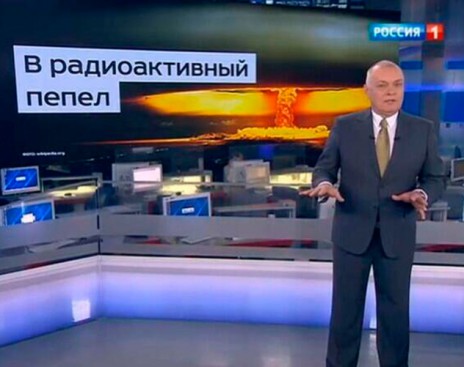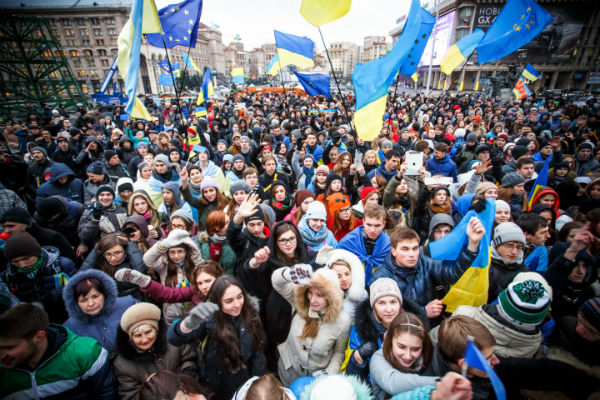The General Court of the EU has rejected an appeal of Dmitry Kiselev, the head of the Kremlin's state news agency Rossiya Segodnya, to annul EU sanctions against him, a statement of the Court from 15 June 2017 reads.
The EU imposed a travel ban and an asset freeze on Kiselev on March 21, 2014. According to the court ruling, Kiselev challenged the repeated extension of the restrictive measures’ application in March 2015, September 2015 and March 2016, and argued that the Council’s decisions were made in violation of law, claiming that they infringe his freedom of expression as a journalist and breach the Partnership Agreement between Russia and the EU.
The Court ruled that the imposed restrictive measures were lawful and that the EU’s Russia sanctions do not breach the EU-Russia Partnership Agreement because Russia’s actions in Ukraine fall within the exceptions for “war or serious international tension constituting threat of war” and that they are regarded as obligations the EU has accepted for the "purpose of maintaining peace and international security."
The Court decided that "it may be considered that the actions of the Russian Federation constitute ‘war or serious international tension constituting threat of war’" in Ukraine and that the EU the Council considered that Kiselev, by his management role in Rossiya Segodya and by his statements as a journalist, had "engaged in propaganda supporting the military actions of the Russian Federation in Ukraine and was therefore one of the persons actively supporting actions or policies undermining or threatening the territorial integrity, sovereignty and independence of Ukraine."
The EU Court underlined the significant role that Kiselev's propaganda played in Russia's war against Ukraine, stating that although Kiselev himself wasn't responsible for the actions and policies of the Russian Government, he provided "active support” for the Russian Government’s actions in Ukraine in a form that is significant enough to “contribute to the continuance of” Russia’s “actions and policies destabilising Ukraine.”
Regarding Kiselev's complaint against the limitations of his freedom of expression, the Court replied that the applicant is a central figure of the propaganda actively supporting the Russian Government’s policy in Ukraine, which is substantiated by several pieces of reliable evidence. Namely, the Court took into account the decisions of Latvia and Lithuania to suspend the broadcasting of Vesti Nedeli programs which Kiselev hosted. In particular, Latvia considered that "those programs contained war propaganda justifying the Russian military intervention in Ukraine and comparing defenders of Ukrainian democracy to Nazis, sending the message that, if those defenders of democracy were in power, they would repeat the crimes committed by the Nazis."
Therefore, the Court considered the sanctions the EU Council slapped on Kiselev to be justified and proportionate, as he "had given active support by portraying events in Ukraine in a light favorable to the Russian Government."
Less restrictive measures would not have been as effective in pursuing the aim of "bringing pressure to bear on Russia’s decision-makers responsible for the situation in Ukraine,” the decision reads.
Dmitry Kiselev (sometimes transcribed as "Kiselyov") is well-known to the Ukrainian audience for the outrageous fakes concerning the situation in Ukraine, including claims that Ukraine is burning veterans alive and a fake Ukrainian diplomat detailing "horrors of Euromaidan." But Kiselev's shows touch upon Western countries as well. One of Kiselev's most famous episodes is a thinly-veiled threat to turn the US into "radioactive dust." In January 2017, Dmitry Kiselev’s popular news show falsely claimed that German Chancellor Angela Merkel sought “Lebensraum” in Eastern Europe like the Nazi regime. Also, Kiselev recently became famous in France. The TV channel Canal+ debunked a show that he anchored on Vesti, where street protests in France were explained as euroskeptics rioting against migrants. In fact, the protests caused by new labor laws and had nothing to do with euroskepticism.
Related:
- Lies of the Russian mass media
- Top 5 Russia’s fakes from EU Stratcom’s Disinformation Review | Issue 17
- Odious Russian personality launches web-based project called Ukraina.ru
- Kremlin propaganda to amplify its influence on foreign audiences
- A guide to Russian propaganda. Part 1: Propaganda prepares Russia for war
- Does Taking Russian TV off the Air in Ukraine Qualify as Censorship?
- A Russian propaganda site incites breaking up Baltic countries
- Russian TV borrows diplomat’s name to discuss “horrors of Euromaidan”



![Linas Linkevicius: A [Russian] T-90 tank in Ukraine isn’t just a "vehicle". A lie is not an alternative point of view. Propaganda is not a legitimate form of public diplomacy. (Image: eu2013.lt)](https://euromaidanpress.com/wp-content/uploads/2015/09/b1b0ccb037ba242a8e825f211c3517ea-800x2.jpg)